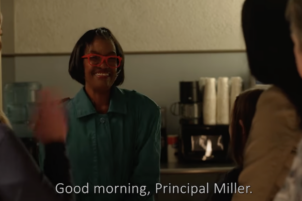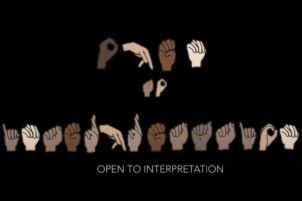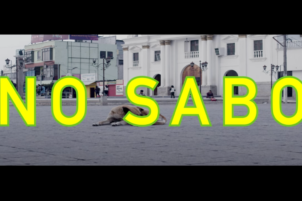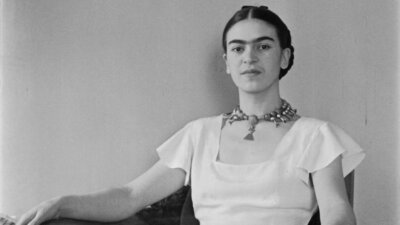
Courtesy of Sundance Institute | photo by Lucienne Bloch.
Park City, Utah, Jan 31 – The Sundance hit “Frida” takes viewers through the famed painter’s life and how her acquired disability plays a role throughout Frida Kahlo’s life. As a teenager, she wanted to become a doctor. After acquiring her disability, she found fulfillment in painting.
In the opening moments, viewers hear an actor reading excerpts from Frida’s writings. “In my life, I’ve only painted the honest expression of myself. To say what I couldn’t in any other way. I pant because I need to.”
Viewers then see Frida’s painting The Broken Column (1944). In this painting, she depicts herself standing on the beach. The beach is in the background while her body is shown in the foreground of the painting. Her body is open down the middle showing a rod and restrictive medical corsets, which she had to wear for most of her life. There are nails embedded into her skin – throughout her body.
The documentary utilizes both Frida’s writings and her paintings, which are brought to life through animation. The film brings Frida’s art into the cinematic universe by using animation to highlight details of emotions through the art so the scene could come alive. Viewers can then become immersed in Frida’s mind.
Frida Kahlo, a Mexican woman who had multiple disabilities including polio as a child and spinal and pelvis damage from a car accident, became a world-renowned self-portrait painter. She has since served as a role model for generations of artists, people with disabilities, and bisexual women.
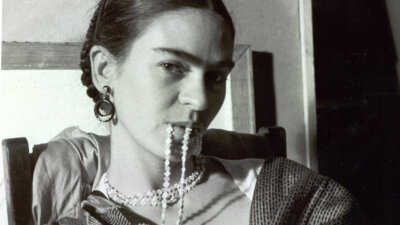
Courtesy of Sundance Institute | photo by Lucienne Bloch.
Frida was in a bus crash in 1925 the caused a fracture in her pelvis and wound in her foot, both of which caused lasting chronic pain. As a child, she had called the world a mystery and said, “deciphering the world was like a game.” After the accident, she lost her innocence. “I now inhabit a world of pain, transparent like ice. It no longer holds any mystery.”
During recovery, she started painting portraits of friends as well as self-portraits. Her mom had created a wooden contraption that allowed her to paint while in bed on her back.
“I became obsessed with starting over. Painting things as I saw them, through no one else’s eyes but my own. My feelings, my moods, and my profound reactions to life.”
Over the next decades her work continued to be influenced by her injury and pain. She alternated between hope and despair but shared that she had “an enormous will to live.”
Painting, she said, completed her life.
“Frida” will stream on Amazon Prime Video beginning March 15.

